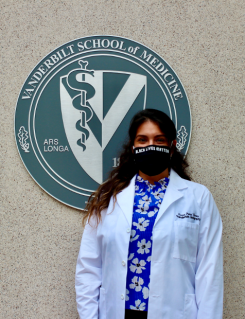We are a group of faculty and first year graduate students who are embarking on a travel expedition into the microbial world. Check this site for a description of what we learn and see along the journey. You can also follow us on Twitter! @ClassMicro
We welcome your constructive feedback!
Evolution of a Protective Symbiont in Honey Bees by Professor Irene Newton, PhD
Monique Porter
March 3, 2022
Speaker Background: Dr. Irene Newton, PhD, specializes in mechanisms of symbiosis; specifically, the molecular mechanisms of host-microbe symbiotic interactions. She obtained her PhD from Harvard University and conducted postdoctoral research at Tufts University. She is currently an associate professor at Indiana University.
Skin microbiota: Roles in barrier maintenance & repair
Teresa Torres, @tsosciency
February 8, 2021
In recent years, the human microbiome began to be considered one of the major organs of the human body; it is defined as the collection of all the microorganisms living in symbiosis with the body (Human Microbiome Project, NIH).
Serendipity and fluorescent D-amino acids
Michelle Wiebe
February 3, 2019
I went to Dr. Michael S. VanNieuwenhze’s seminar about the use of fluorescent D-amino acids (FDAAs) and their use in the study of bacterial cell division. Bacterial cells, unlike mammalian cells, have a cell wall in addition to the cell membrane. That cell wall contains a molecule called peptidoglycan (PG). Peptidoglycan is a polymer of sugars and amino acids. Short chains of amino acids (peptides) link the sugars together to form a mesh like barrier around the inner cell membranes of bacteria.
Targeting bacteriophage to treat bacterial infections
SCTran
January 25, 2019
On Monday, January 7, 2019, Dr. Patrick Secor from the University of Montana came to give a talk titled “Targeting bacteriophage to treat bacterial infections”. This is a novel approach towards treating bacterial infections. Normally, bacteriophages are thought of as a virus that harms bacteria and not humans. How would targeting bacteriophages help treat bacterial infections? Wouldn’t this be doing the opposite, because by killing bacteriophages you’re allowing for the bacteria to persist? Perhaps not as Dr.


